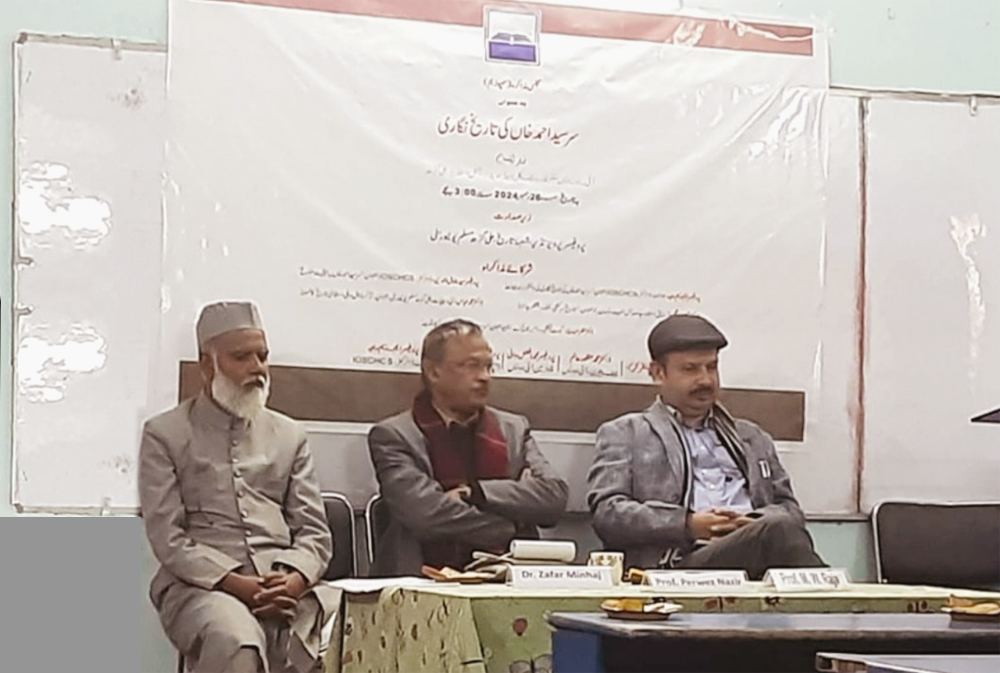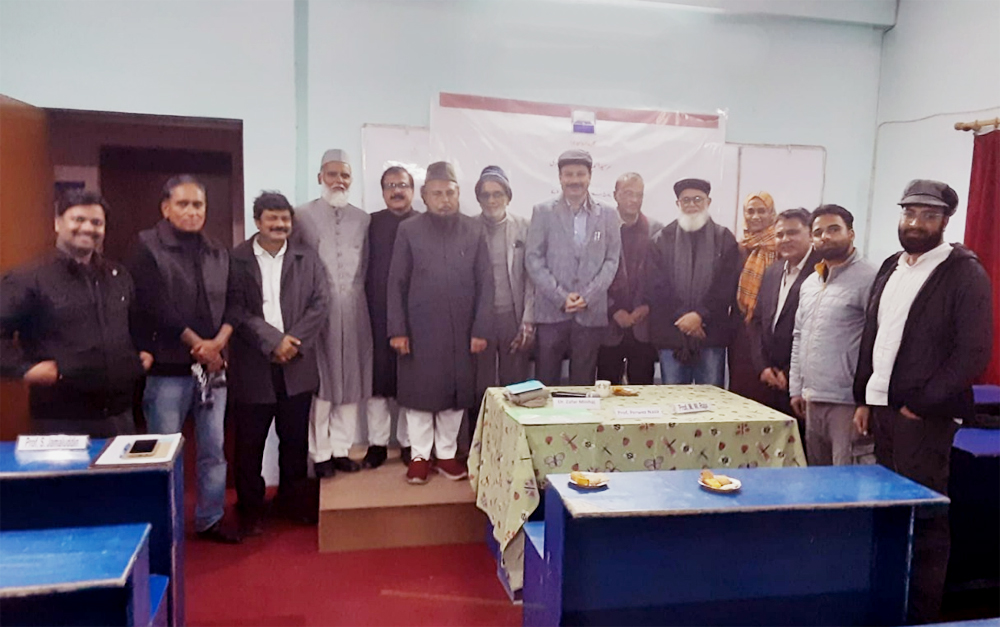IOSCHS Symposium on “Sir Syed Ahmad Khan ki Tarikh Nigari’

IOSCHS Symposium on “Sir Syed Ahmad Khan ki Tarikh Nigari’
Aligarh: IOS Centre for Historical and Civilisational Studies (IOSCHS) organised a Symposium on the theme ‘Sir Syed Ahmad Khan ki Tarikh Nigari’ on December 6, 2024 at IOS Aligarh Chapter.
Proceedings of the symposium began with the recitation of a few Qur’anic verses by Aalima Gulfishan from the Qur’anic School. Thereafter, Professor M Waseem Raja, Joint Director IOSCHCS, Aligarh extended a warm welcome to the Chairman of the session, panelists, and the audience.
Prof. Syed Jamaluddin, Director, IOSCHCS, while introducing the theme said that Sir Syed started his academic career as a historian. He was interested in the cultural heritage of medieval India, Delhi in particular. As reflected in his monumental work titled ‘Asarus Sanadid’, which soon reached the readers in Europe. He added that Sir Syed is the first archaeologist who vividly described the medieval Delhi’s historical monuments. Sir Syed is also the father of Urdu historiography and the first historian who wrote on contemporary history.
Prof. Waseem Raja presented his paper on ‘Sir Syed ki Tarikh Nigari ki Daanishwarana Jihat’. He said that Sir Syed was an intellectual par excellence who applied scientific methods to anaylse historical events. He worked hard to give a true description of about 500 monuments that had existed in Delhi. He added that when Sir Syed wrote on the causes of the 1857 Revolt, he had a great purpose in mind and wrote without fear how certain British policies were responsible for the great event.
In his paper titled ‘Sir Syed ba Haisiyat Moarrikh’, Prof. Jamal spoke about the merits of Sir Syed’s historical works. He said that by writing history in Urdu, Sir Syed brought history to a greater number of readers. He examined Sir Syed’s historical methodology by giving examples from his historical works.
Dr. Jabeen Anjum, formerly Principal, Jamia Urdu College of Education, Aligarh, made a critical reappraisal of Sir Syed’s ‘Tarikh Sarkashi Zila Bijnore’. She pointed out that Sir Syed wrote this book while he was an employee of the British and he used in this book every opportunity to prove his loyalty to the British. On the other hand, he appears very harsh to those Indians who rose in rebellion against the British. She regretted that Sir Syed expressed his contempt of the revolutionaries by using abusive language.
Dr. Mohammad Abbas, Dept. of Sunni Theology, presented his paper on ‘Sir Syed’s Tazkira-e-Dehli’. He said that this book was originally a part of Asarus Sanadid, but Sir Syed was later on told to withdraw this part and publish it as an independent book. Therefore, the book was published in 1854 without this part. He said that this book represents Delhi’s social and cultural life during the lifetime of the author and also brings forth the spiritual leanings of Sir Syed which lasted until he breathed his last.
Dr. Zafar Minhaj, Guest Faculty at Women’s College, Aligarh Muslim University, Aligarh, presented a long essay on ‘Sir Syed Ahmad Khan Ba Haisiyat Mahir-e-Asaar-e-Qadeema’.
Towards the end of the Symposium, Prof. Perwez Nazeer, CAS, Dept. of History, Aligarh Muslim University, Aligarh gave his presidential remarks mentioning in particular the highlights of the papers presented by the five panelists. He said that Sir Syed will always be remembered as the Father of Urdu Historiography. He hoped that young researchers will turn to writing their researches in Urdu to guide the young generations. Finally, Dr. Syed Kaleem Afrough Zaidi, Associate Professor, Civil Engineering Section, University Polytechnic, Aligarh Muslim University, presented a vote of thanks and invited all to a high tea.

Go Back